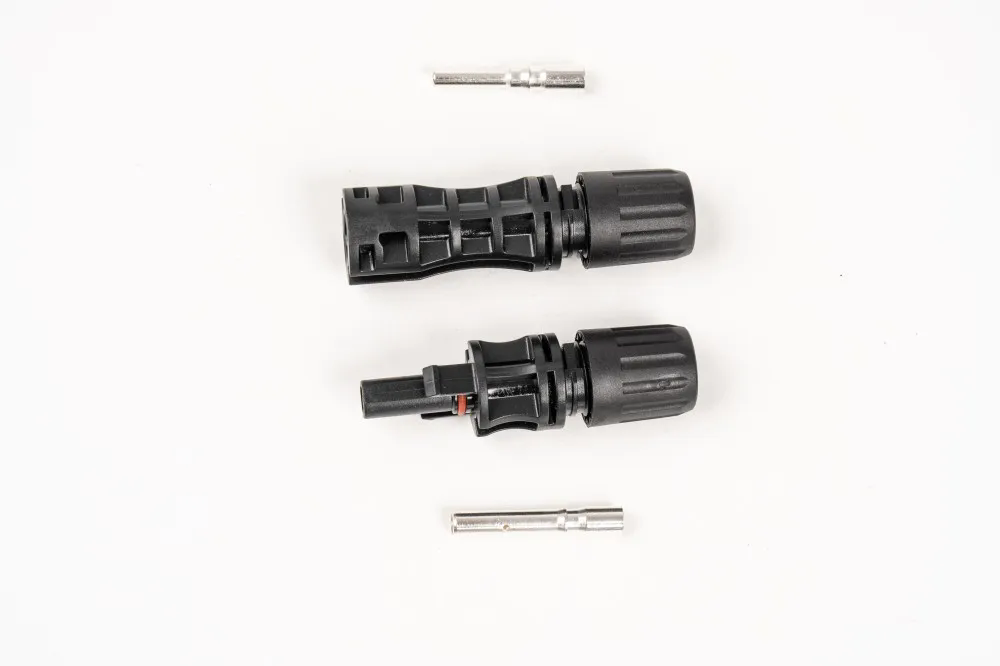Why Are Solar Connectors Crucial for Efficient Solar Power Systems?
2025-01-07
In the world of renewable energy, solar power is quickly becoming one of the most reliable and sustainable sources of electricity. As more homeowners and businesses shift towards solar energy, it’s important to understand the components that make up a solar power system. Among these, solar connectors play a critical role in ensuring the efficiency, safety, and longevity of solar installations. But why are solar connectors so important? How do they contribute to the overall functionality of solar energy systems? Let’s explore the vital role solar connectors play in creating an effective and durable solar power system.
What Exactly Are Solar Connectors?
Solar connectors are small but essential components used to connect various parts of a solar energy system, including solar panels, inverters, charge controllers, and batteries. These connectors facilitate the safe and efficient transfer of electricity from the solar panels to the rest of the system. Solar connectors are designed to handle the unique challenges of outdoor environments, as they need to withstand harsh weather conditions, fluctuating temperatures, and even UV exposure.
Typically, solar connectors come in pairs of male and female connectors, which allow for quick and secure wiring between components. The most common type of solar connector is the MC4 connector, but there are several other types designed to meet the needs of specific applications and system configurations.
Why Are Solar Connectors Important?
1. Ensuring Safe and Reliable Connections:
The main function of solar connectors is to provide a secure, stable connection between the different parts of the solar system. Loose or poorly connected terminals can lead to power loss, electrical shorts, or even fires. Solar connectors are designed to ensure that each connection is secure and reliable, preventing accidents or disruptions in power supply.
2. Durability and Weather Resistance:
Since solar power systems are often installed in outdoor environments, the connectors need to be durable enough to withstand weather extremes. Solar connectors are built to be waterproof, UV-resistant, and able to operate under high and low temperatures. This ensures they can continue to perform efficiently for many years, regardless of the weather conditions.
3. Efficiency and Power Transfer:
A good solar connector ensures minimal energy loss. By maintaining a tight connection, the electricity generated by the solar panels flows smoothly to the inverter and other system components without any resistance or power loss. If the connectors are of poor quality or improperly installed, it could result in voltage drops or even system inefficiencies. High-quality solar connectors help maximize the energy production of your solar power system.
4. Ease of Installation:
Solar connectors are designed for quick, tool-free installation. This ease of installation helps save time and labor costs, especially in large-scale solar installations. Many connectors feature a locking mechanism that prevents them from coming undone, ensuring a firm, stable connection that doesn’t require constant monitoring or maintenance.
5. Safety:
Solar connectors are designed with safety features such as protective covers that prevent electrical shorts, sparks, or water ingress. They are also equipped with locking mechanisms that ensure the connectors stay secure once connected. This reduces the likelihood of accidental disconnections or dangerous malfunctions.
Types of Solar Connectors
There are several types of solar connectors used in different applications. The most common types include:
1. MC4 Connectors:
The MC4 connector is the most widely used type of solar connector in the industry. These connectors are known for their reliability and ease of use, making them suitable for both residential and commercial solar installations. MC4 connectors feature a locking mechanism that ensures a secure and waterproof connection.
2. MC3 Connectors:
MC3 connectors are similar to MC4 connectors but are generally used in older solar systems. While MC3 connectors are less common today, they are still used for specific types of solar panel installations.
3. Quick Connectors:
Quick connectors are designed for fast and efficient installation. These connectors are often used in temporary solar systems or mobile setups, such as solar-powered vehicles or emergency kits. They allow installers to make secure connections without requiring specialized tools.
4. Branch Connectors:
Branch connectors are used to link multiple solar panels together in parallel. These connectors allow installers to combine the outputs of several panels, helping increase the overall energy production of the system.
5. Solar Panel to Inverter Connectors:
These connectors are used specifically to link solar panels to the inverter, which is responsible for converting the DC power generated by the solar panels into AC power for use in homes and businesses.
How to Choose the Right Solar Connector
When selecting solar connectors, it’s crucial to consider several factors to ensure they match the specific requirements of your solar power system. Here are some tips for choosing the best solar connector:
1. Compatibility:
Make sure the connectors are compatible with your solar panels, inverters, and other components. Most modern solar panels use MC4 connectors, but it's important to double-check the specifications of your equipment before purchasing connectors.
2. Current and Voltage Ratings:
Ensure that the connectors you choose can handle the current and voltage ratings required by your system. Solar connectors have specific limits, and selecting connectors that are rated for higher current or voltage will prevent overheating and potential damage to the system.
3. Environmental Considerations:
Since solar power systems are often exposed to outdoor conditions, the connectors need to be designed for outdoor use. Look for connectors that are waterproof (with an appropriate IP rating) and UV-resistant. Additionally, ensure that they can handle temperature fluctuations and harsh weather.
4. Durability and Quality:
The quality of the connectors plays a significant role in the long-term performance of your solar power system. Choose connectors made from high-quality materials, such as copper or stainless steel, and ensure that they meet industry standards for safety and reliability.
Conclusion: The Backbone of a Solar System
Solar connectors are small, yet vital components that play an essential role in the overall performance and longevity of solar power systems. By providing secure, weather-resistant, and efficient connections between solar panels, inverters, and other system components, solar connectors ensure that the system works optimally and safely over time.
Whether you're installing a residential solar power system or working on a larger commercial project, selecting the right solar connectors is crucial to ensuring the safety, efficiency, and longevity of your solar energy setup. As solar energy continues to grow in popularity, understanding the importance of solar connectors will help ensure that your system operates at peak performance for many years to come.



